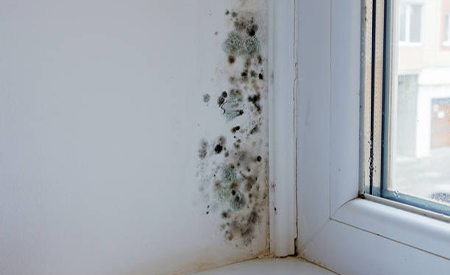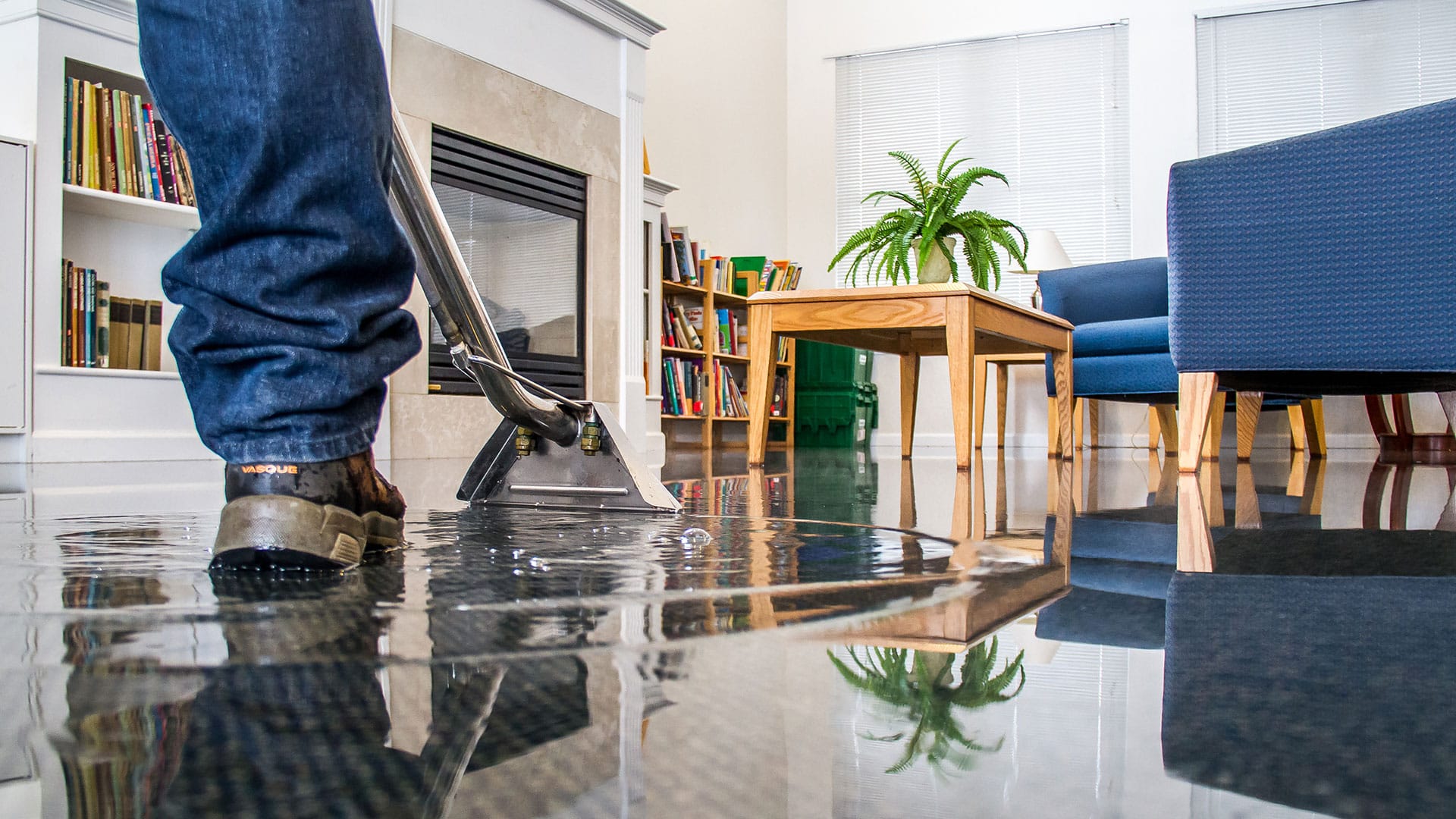Cost-Effective Damage Restoration Services to Handle Severe Water Issues
The Refine of Water Damage Cleaning: Ensuring Your Home Is Brought Back Efficiently
Water damages can be a difficult obstacle for house owners, demanding a organized and thorough cleaning process to restore security and performance. An extensive evaluation is critical to recognize the degree of the damage and identify the suitable removal steps. Following this, effective water extraction techniques play a crucial function in mitigating additional damage. Nevertheless, the subtleties of drying out, sterilizing, and ultimate repair are similarly important and commonly overlooked. Understanding these phases can make a considerable distinction in the result of your home's reconstruction, prompting a closer check out what each action entails.
Analyzing the Damages
Upon uncovering water damage, the first action is to completely assess the extent of the effect. This preliminary assessment is vital, as it aids identify the required actions for effective clean-up and restoration. Begin by examining the impacted locations, including wall surfaces, ceilings, floors, and individual belongings, to determine the source of the water breach, whether from flooding, leaks, or condensation.
Recording the damages is vital for both insurance policy cases and planning restoration initiatives - damage restoration services. Usage photographs and written notes to capture the extent of the damages, keeping in mind any afflicted structural components and products. Pay unique focus to areas that may not be instantly noticeable, such as behind walls and under rugs, as concealed moisture can lead to further difficulties, including mold and mildew growth
In addition, examine the timeline of the water direct exposure. The longer the products remain damp, the better the capacity for damage. Recognizing the duration of exposure will certainly educate the necessity of removal initiatives. Ultimately, a comprehensive evaluation prepares for an effective water damage cleanup procedure, making certain that all affected locations are attended to properly and thoroughly.
Water Extraction Techniques

Experts usually employ submersible pumps for bigger volumes of water, which can rapidly relieve flooding in basements or various other affected areas. For smaller sized amounts, wet/dry vacuums are commonly utilized to remove recurring wetness from carpetings and hard surface areas. Furthermore, using mobile extractors permits targeted removal in constrained rooms or locations with delicate products.
In circumstances of polluted water, such as sewer or floodwater, advanced removal techniques may include making use of biohazard equipment to make sure security and compliance with wellness policies. High-powered extraction devices are essential in reducing water retention in structural materials, which can result in mold and mildew development and structural wear and tear if not resolved promptly.
Ultimately, the efficiency of water extraction techniques plays a pivotal duty in the general success of the water damage clean-up process, preparing for subsequent remediation efforts.
Drying and Dehumidification
Once standing water has been successfully removed, the following vital stage in the water damages cleaning procedure is drying out and dehumidification. This step is important to protect against additional damages and mold development, which can happen within 24 to two days in wet settings.
To attain efficient drying out, specific tools such as industrial-grade air movers and dehumidifiers is utilized. Air moving companies distribute air across damp surface areas, enhancing evaporation prices, while dehumidifiers lower moisture levels airborne, promoting a favorable environment for drying out. The mix of these devices makes sure that wetness is extracted from furnishings, floors, and wall surfaces, permitting them to dry extensively.
It is necessary to check the drying process very closely. Experts usually make use of moisture meters to assess the moisture content in various materials, making certain that all influenced locations reach acceptable dry skin degrees. This meticulous method helps to stop surprise moisture pockets that can cause architectural damages or harmful mold development.

Cleaning and Disinfecting
After the drying out and dehumidification stage is full, the next vital step in water damages cleaning is cleansing and sterilizing the affected areas. This procedure is crucial to stop the development of mold, microorganisms, and other microorganisms that prosper in moist atmospheres.
The cleansing water damage remediation phase normally involves getting rid of any type of debris, dirt, and pollutants from surfaces making use of specialized cleaning agents. For hard surfaces, a combination of soap and water or commercial cleaning items is usually employed. Soft products, such as upholstery and carpetings, may require more considerable cleaning methods, consisting of vapor cleaning or deep extraction strategies, to guarantee thorough sanitation.

Sanitizing follows cleansing, using EPA-approved disinfectants to get rid of harmful microorganisms. This step is essential, specifically in locations that may have entered contact with floodwaters or sewer, as these sources can pose serious health threats.
In addition, it is essential to resolve any kind of staying odors, which may require making use of odor neutralizers or innovative methods like ozone therapy. Appropriate cleaning and sanitizing not just bring back the security and hygiene of your home but likewise lay the groundwork for successful reconstruction and repair work in succeeding phases of the water damages cleanup procedure.
Remediation and Repairs

When the evaluation is go right here full, repair initiatives can start. Furthermore, floor covering may need comparable focus, depending on the degree of water direct exposure.
It is vital to involve seasoned reconstruction professionals during this process, as they have the expertise to manage complicated repair work effectively. Moreover, they can assist alleviate potential future issues, such as mold development or architectural instability, therefore making certain a secure and habitable living environment. Eventually, reliable remediation and fixings recover the home's honesty and boost its overall value.
Final Thought
Finally, the procedure of water damage cleaning is essential for recovering a home to its pre-damage condition. Each phase, from analyzing the damage to executing effective water extraction techniques, complied with by thorough drying, sanitizing, and required repair work, plays an important role in making certain safety and security and conformity with structure criteria. Effective execution of these steps not only alleviates instant damage but likewise boosts the long-term stability and value of the building.
Water damages can be an overwhelming difficulty for homeowners, demanding a precise and organized clean-up procedure to recover safety and security and performance. Inevitably, a detailed evaluation lays the groundwork for a successful water damages clean-up procedure, guaranteeing that all affected areas are addressed effectively and extensively.
Efficient water extraction water damage articles methods are necessary in minimizing damages and protecting against further problems complying with a water invasion event.In final thought, the process of water damages cleaning is crucial for restoring a home to its pre-damage condition. Each stage, from examining the damages to implementing effective water removal strategies, complied with by thorough drying, sanitizing, and essential repair work, plays an essential function in making sure security and conformity with structure criteria.